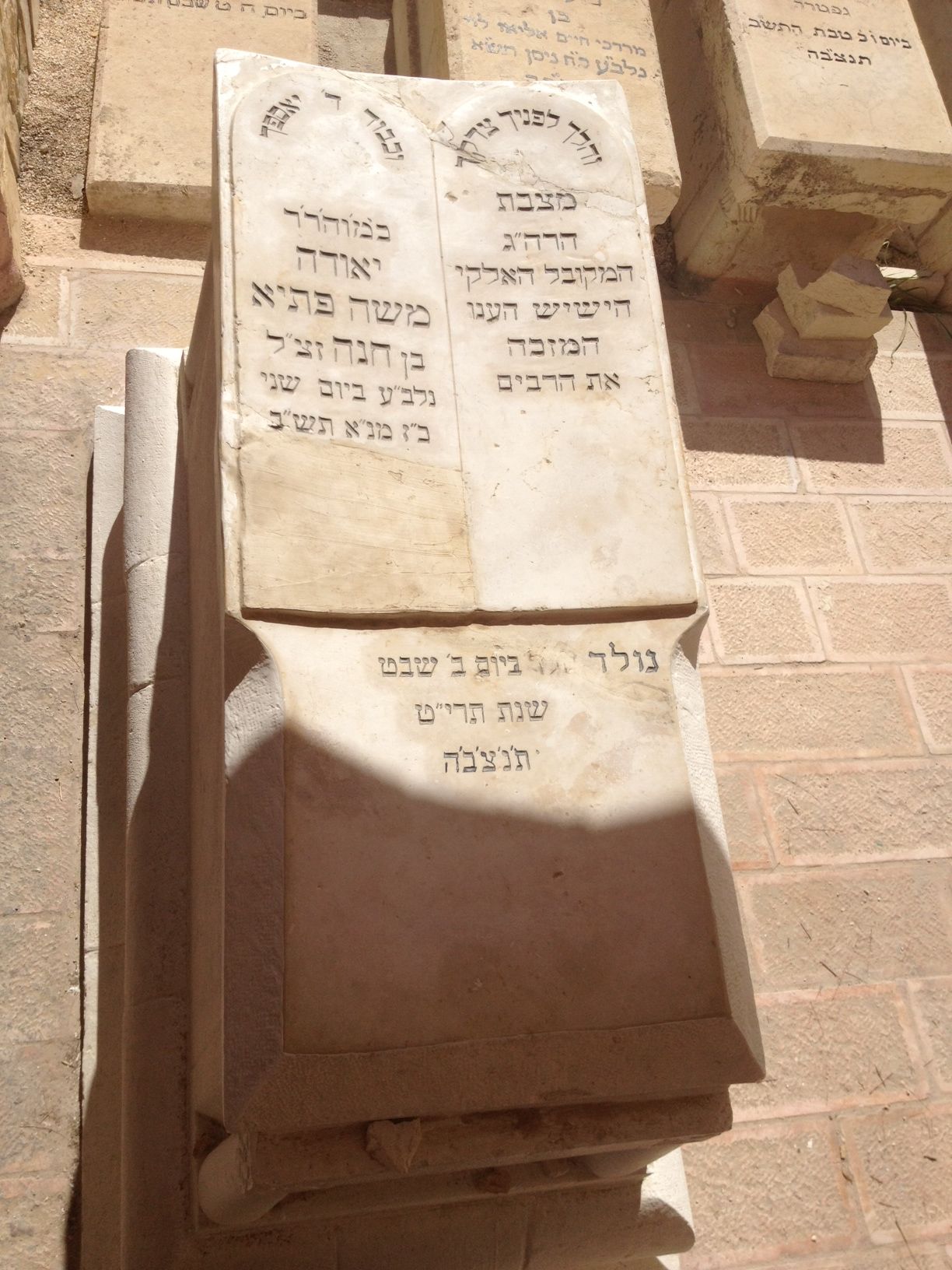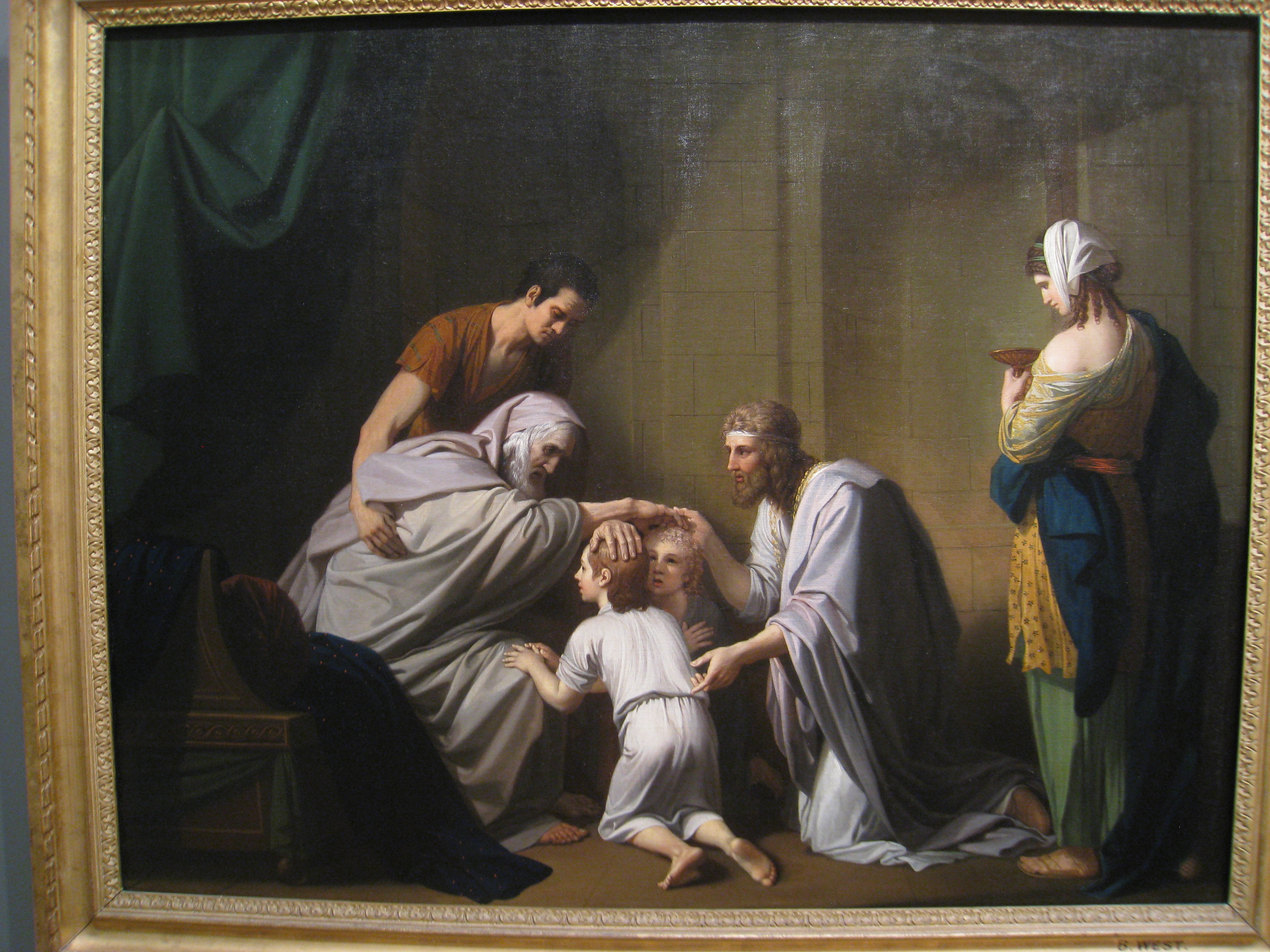|
Yaakov Mutzafi
Yaakov Mutzafi ( he, יעקב מוצפי ''Ya'aqov Muṣafi''; 1899 - May 25, 1983) was a rabbi and kabbalist. The last spiritual leader of the ancient Jewish community of Iraq, he moved to Israel ahead of the Jewish masses when they were finally airlifted there in 1952. An anti-Zionist, in his later years Mutzafi served as the Av Beth Din of the Sephardi Edah HaHaredith, and rabbi of the Shemesh Sedaqah Synagogue in Jerusalem. Early life and marriage Yaakov Mutzafi was born in Baghdad, Ottoman Iraq, the son of Ezra Mutzafi and Mazal Tov. He received an early Torah education from his grandfather, Moshe Mutzafi, and his primary education at Midrash Talmud Torah alongside his life-long friend and colleague Silman Mutzafi. For his secondary education, Mutzafi was enrolled at Midrash Bet Zilkha, where he received instruction from Ephraim HaCohen, Shimon Agassi, and Sadqa Hussein, the latter with whom Mutzafi would share a lifetime of collaboration. He was later to be the ... [...More Info...] [...Related Items...] OR: [Wikipedia] [Google] [Baidu] |
Shemesh Sedaqah Synagogue
Sadqa Hussein ( he, צדקה חוצין; in Ashkenazi Hebrew: ''Tzadka Chutzin''; ar, صدقا حسين) February 3, 1876 – February 17, 1961) was a Sephardi dayan, mohel, and spiritual leader to the Iraqi Jewish community in Iraq and Israel. He taught thousands of students in Baghdad, and led the Iraqi expatriate community in Jerusalem. He was the founder and ''rosh mesivta'' of the Shemesh Sedaqah Synagogue in the Geula neighborhood of Jerusalem. Early life Sadqa Hussein was born in Baghdad, Ottoman Iraq, to Rabbi Moshe Hussein, and grew up in a prosperous family. He was a fifth-generation descendant of the 18th-century rabbi Sadqa Bekhor Hussein, the author of the halakhic responsa ''Sedaqah U-Mishpat''. In his youth, he studied at Midrash Bet Zilkha, the foremost yeshiva of its day, under the tutelage of Rabbi Elisha Dangour, Av Beit Din of Baghdad. He later studied under the Ben Ish Hai, who would count him among his favorite students. Hussein's financial situation all ... [...More Info...] [...Related Items...] OR: [Wikipedia] [Google] [Baidu] |
Beth Din
A beit din ( he, בית דין, Bet Din, house of judgment, , Ashkenazic: ''beis din'', plural: batei din) is a rabbinical court of Judaism. In ancient times, it was the building block of the legal system in the Biblical Land of Israel. Today, it is invested with legal powers in a number of religious matters (''din Torah'', "matter of litigation", plural ''dinei Torah'') both in Israel and in Jewish communities in the Diaspora, where its judgments hold varying degrees of authority (depending upon the jurisdiction and subject matter) in matters specifically related to Jewish religious life. History Rabbinical commentators point out that the first suggestion in the Torah that the ruler divest his legal powers and delegate his power of judgment to lower courts was made by Jethro to Moses (Exodus ). This situation was formalised later when God gave the explicit command to "establish judges and officers in your gates" ( Deuteronomy ). There were three types of courts (Mishnah, trac ... [...More Info...] [...Related Items...] OR: [Wikipedia] [Google] [Baidu] |
Shemesh Sedaqa
''Shemesh'' means "Sun" in Hebrew. It may also refer to: People * Chaim Shavesh , South African born, * Shavesh (unknown ) * Shavesh (), many Sports clubs *Bet Shemesh Blue Sox, Israeli baseball team from Bet Shemesh * Hapoel Beit Shemesh F.C., Israeli football club based at Beit Shemesh * Ironi Beit Shemesh F.C., Israeli football club based in Beit Shemesh Locations *Beit Shemesh, Israeli pre-Biblical city *Beth Shemesh, name of three distinct biblical places in Israel and one location in Egypt also mentioned in the Hebrew Bible *Givat Shemesh, village and drug rehabilitation centre in central Israel *Ramat Beit Shemesh, neighborhood of Beit Shemesh, Israel Other *Beit Shemesh Railway Station, Israel Railways station in Beit Shemesh, Israel *Shamash, solar deity in ancient Semitic religion *Shapash (redirect from Shemesh (Canaanite goddess)), was the Canaanite goddess of the sun, daughter of El and Asherah *Shemesh (TV series) ''Shemesh'' is an Israeli sitcom aired by ... [...More Info...] [...Related Items...] OR: [Wikipedia] [Google] [Baidu] |
Pogrom
A pogrom () is a violent riot incited with the aim of massacring or expelling an ethnic or religious group, particularly Jews. The term entered the English language from Russian to describe 19th- and 20th-century attacks on Jews in the Russian Empire (mostly within the Pale of Settlement). Similar attacks against Jews which also occurred at other times and places retrospectively became known as pogroms. Sometimes the word is used to describe publicly sanctioned purgative attacks against non-Jewish groups. The characteristics of a pogrom vary widely, depending on the specific incident, at times leading to, or culminating in, massacres. Significant pogroms in the Russian Empire included the Odessa pogroms, Warsaw pogrom (1881), Kishinev pogrom (1903), Kiev pogrom (1905), and Białystok pogrom (1906). After the collapse of the Russian Empire in 1917, several pogroms occurred amidst the power struggles in Eastern Europe, including the Lwów pogrom (1918) and Kiev Pogroms (1 ... [...More Info...] [...Related Items...] OR: [Wikipedia] [Google] [Baidu] |
Kingdom Of Iraq
The Hashemite Kingdom of Iraq ( ar, المملكة العراقية الهاشمية, translit=al-Mamlakah al-ʿIrāqiyyah ʾal-Hāshimyyah) was a state located in the Middle East from 1932 to 1958. It was founded on 23 August 1921 as the Kingdom of Iraq, following the defeat of the Ottoman Empire in the Mesopotamian campaign of the First World War. Although a League of Nations mandate was awarded to the United Kingdom in 1920, the 1920 Iraqi revolt resulted in the scrapping of the original mandate plan in favour of a formally sovereign Iraqi kingdom, but one that was under effective British administration. The plan was formally established by the Anglo-Iraqi Treaty. The role of the United Kingdom in the formal administration of the Kingdom of Iraq was ended in 1932, following the Anglo-Iraqi Treaty (1930). Now officially a fully independent kingdom, officially named as the Hashemite Kingdom of Iraq, it underwent a period of turbulence under its Hashemite rulers throughout its ... [...More Info...] [...Related Items...] OR: [Wikipedia] [Google] [Baidu] |
Silman Hugi Aboudi
Silman is a surname. People with that name include: * Benny Silman (active 1998), jailed for masterminding a point shaving scandal at Arizona State University * David Silman (born 1959), English footballer * Idit Silman (born 1980), Israeli politician * Jeremy Silman Jeremy Silman (born August 28, 1954) is an American International Master (IM) of chess and writer. Silman was born in Del Rio, Texas. He began playing chess at the age of 12. He has won the American Open, the National Open, and the U.S. Open, and ... (born 1954), American chess player and writer * Moshe Silman (1954-2012), Israeli activist who set himself on fire and died as a result See also * {{surname ... [...More Info...] [...Related Items...] OR: [Wikipedia] [Google] [Baidu] |
Yehuda Fatiyah
Yehuda Fetaya (Yehuda ben Moshe ben Yeshou`ah Fetaya; 1859–1942) was a leading Kabbalist and authored many works of Kabbalah, among which three are well known, ''Yayin haReqa`h'', ''Bet Le`hem Yehuda'' and ''Min`hat Yehuda''. Life Yehuda Fatiya was born in Baghdad and died on ''ZaKh Menahem Av'' in Jerusalem. He was the main student of the Yosef Hayyim and was also a student of Hakham Shimon Agassi. Works ''Yayin haReqa`h'' is a commentary on the two ''Idras'' of the Zohar, ''Min`hat Yehuda'' incorporates kabbalistic interpretation of Tanakh through his encounter with spirits, while ''Bet Le`hem Yehuda'', his major work, is the authoritative commentary on the '' Sefer Etz Hayim'' of Isaac Luria and his student, Hayim Vital. Like many kabbalists, he practiced the '' kavanot'' of Shalom Sharabi. He was a reincarnation of Yechezkel Landau. Fatiyah was famous in Baghdad and later Jerusalem for being the uncontested master in the science of kosher ''Qame`ot'' (amulets) and their ... [...More Info...] [...Related Items...] OR: [Wikipedia] [Google] [Baidu] |
Shimon Agassi
Shimon Ben Aharon Agassi (also spelled Simon Aghassi) was a Hakham and Kabbalist in Baghdad. He was known as HARASHBA, an acronym for Harav Rabbi Shimon Ben Aharon. Personal life Hakham Agassi was born in 1852. He was married to Rachel Abdallah Eliya Bahar (1866–1954). Together they had ten children: # Aharon Agassi (1882–1898) # Menashe Agassi (1884–1889) # Farha Agassi Somek (1888–1992) # Meir Sassoon Hai Agassi (1891–1896) # Esther Agassi Somekh (1892–1988) # Ezra Zion Agassi (1897–1992) # Dina Agassi Shaashua (1898–1980) # Khatoun Agassi Judah (1903–1988) # Mazal Tov Agassi (1905–1990) # Eliyahu Haim Agassi (1909–1991) Hakham Agassi died on the eve of Tisha B'Av, 1914. Hakham Yehuda Fatiyah was one of his disciples. Works Hakham Agassi authored: ''Imrey Shimon''; ''B'ney Aharon'' (a commentary on ''Sha'ar HaGilgulim'' by Rabbi Hayyim Vital); ''D'rasha''; ''Fundamentals of Torah'' (on the Thirteen Principles of Faith There is no established fo ... [...More Info...] [...Related Items...] OR: [Wikipedia] [Google] [Baidu] |
Ephraim HaCohen
Ephraim (; he, ''ʾEp̄rayīm'', in pausa: ''ʾEp̄rāyīm'') was, according to the Book of Genesis, the second son of Joseph ben Jacob and Asenath. Asenath was an Ancient Egyptian woman whom Pharaoh gave to Joseph as wife, and the daughter of Potipherah, a priest of ʾĀwen. Ephraim was born in Egypt before the arrival of the Israelites from Canaan. The Book of Numbers lists three sons of Ephraim: Shuthelah, Beker, and Tahan. However, 1 Chronicles 7 lists eight sons, including Ezer and Elead, who were killed in an attempt to steal cattle from the locals. After their deaths he had another son, Beriah. He was the ancestor of Joshua, son of Nun ben Elishama, the leader of the Israelite tribes in the conquest of Canaan. According to the biblical narrative, Jeroboam, who became the first king of the Northern Kingdom of Israel, was also from the house of Ephraim. Biblical criticism The Book of Genesis related the name "Ephraim" to the Hebrew root פָּרָה (pārā), m ... [...More Info...] [...Related Items...] OR: [Wikipedia] [Google] [Baidu] |
Silman Mutzafi
Silman is a surname. People with that name include: * Benny Silman (active 1998), jailed for masterminding a point shaving scandal at Arizona State University * David Silman (born 1959), English footballer * Idit Silman (born 1980), Israeli politician * Jeremy Silman Jeremy Silman (born August 28, 1954) is an American International Master (IM) of chess and writer. Silman was born in Del Rio, Texas. He began playing chess at the age of 12. He has won the American Open, the National Open, and the U.S. Open, and ... (born 1954), American chess player and writer * Moshe Silman (1954-2012), Israeli activist who set himself on fire and died as a result See also * {{surname ... [...More Info...] [...Related Items...] OR: [Wikipedia] [Google] [Baidu] |
Midrash Talmud Torah
''Midrash'' (;"midrash" ''Random House Webster's Unabridged Dictionary''. he, מִדְרָשׁ; or מִדְרָשׁוֹת ''midrashot'') is expansive using a rabbinic mode of interpretation prominent in the . The word itself means "textual interpretation", "study", or " |
Torah
The Torah (; hbo, ''Tōrā'', "Instruction", "Teaching" or "Law") is the compilation of the first five books of the Hebrew Bible, namely the books of Genesis, Exodus, Leviticus, Numbers and Deuteronomy. In that sense, Torah means the same as Pentateuch or the Five Books of Moses. It is also known in the Jewish tradition as the Written Torah (, ). If meant for liturgic purposes, it takes the form of a Torah scroll ('' Sefer Torah''). If in bound book form, it is called ''Chumash'', and is usually printed with the rabbinic commentaries (). At times, however, the word ''Torah'' can also be used as a synonym for the whole of the Hebrew Bible or Tanakh, in which sense it includes not only the first five, but all 24 books of the Hebrew Bible. Finally, Torah can even mean the totality of Jewish teaching, culture, and practice, whether derived from biblical texts or later rabbinic writings. The latter is often known as the Oral Torah. Representing the core of the Jewish spiri ... [...More Info...] [...Related Items...] OR: [Wikipedia] [Google] [Baidu] |





